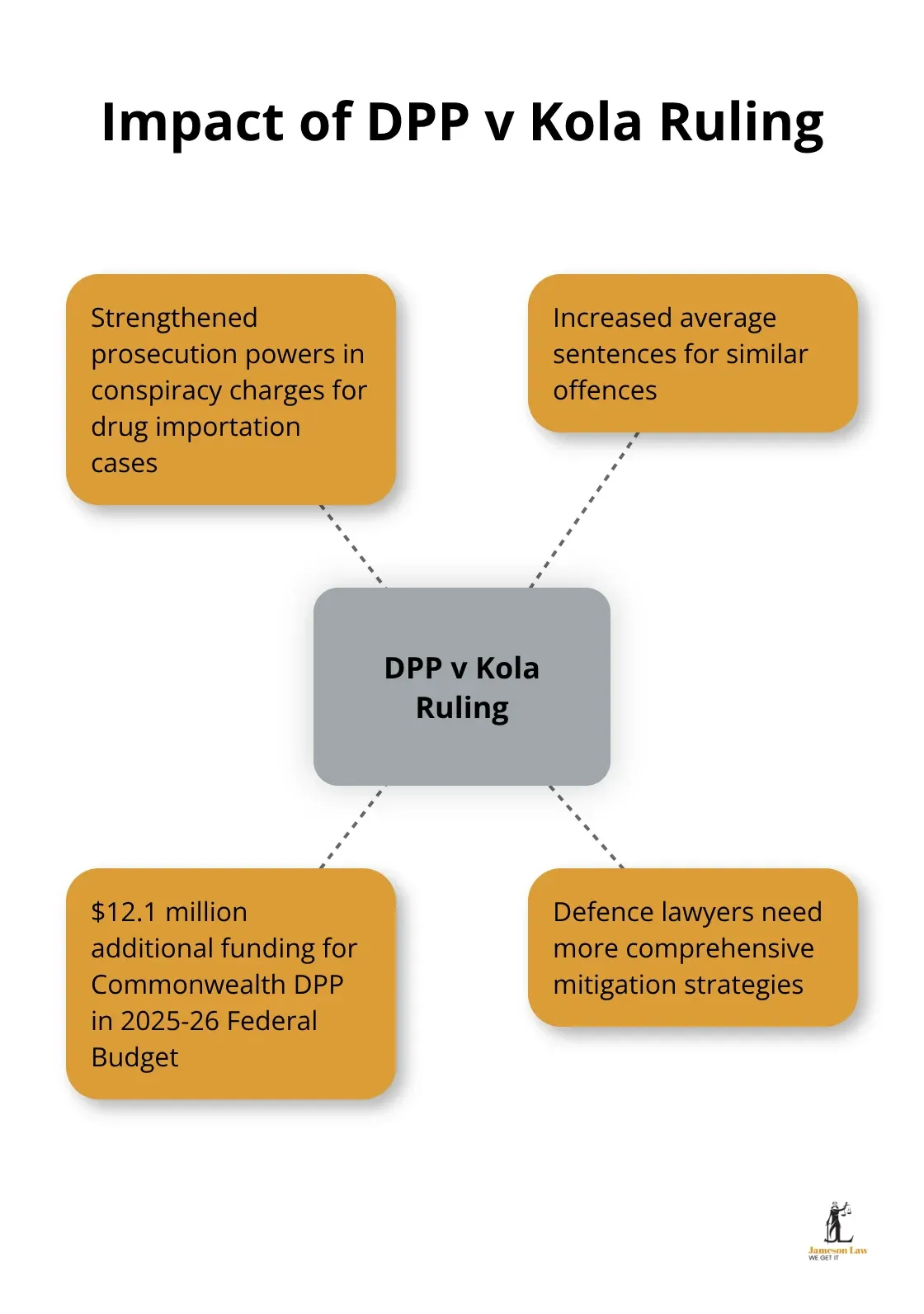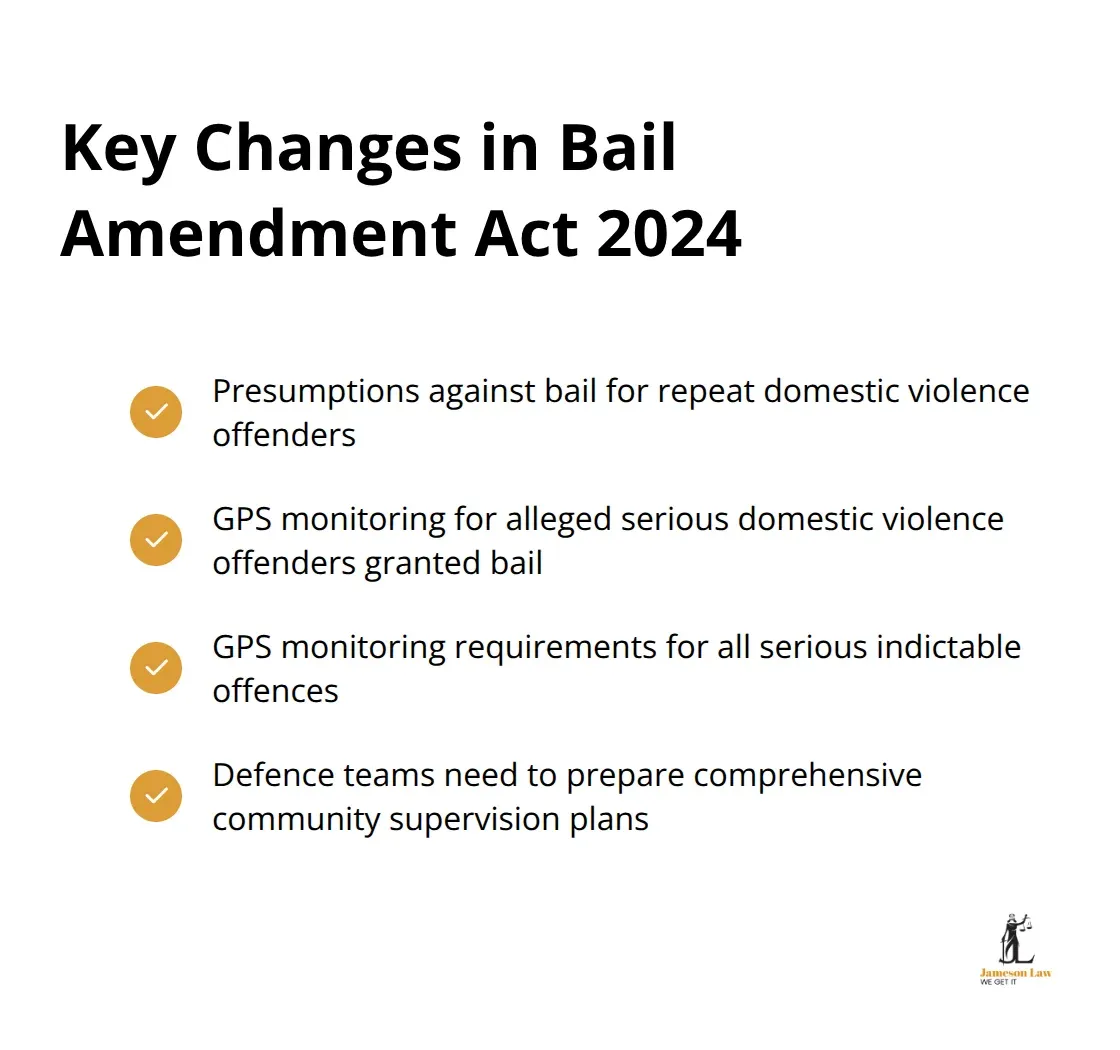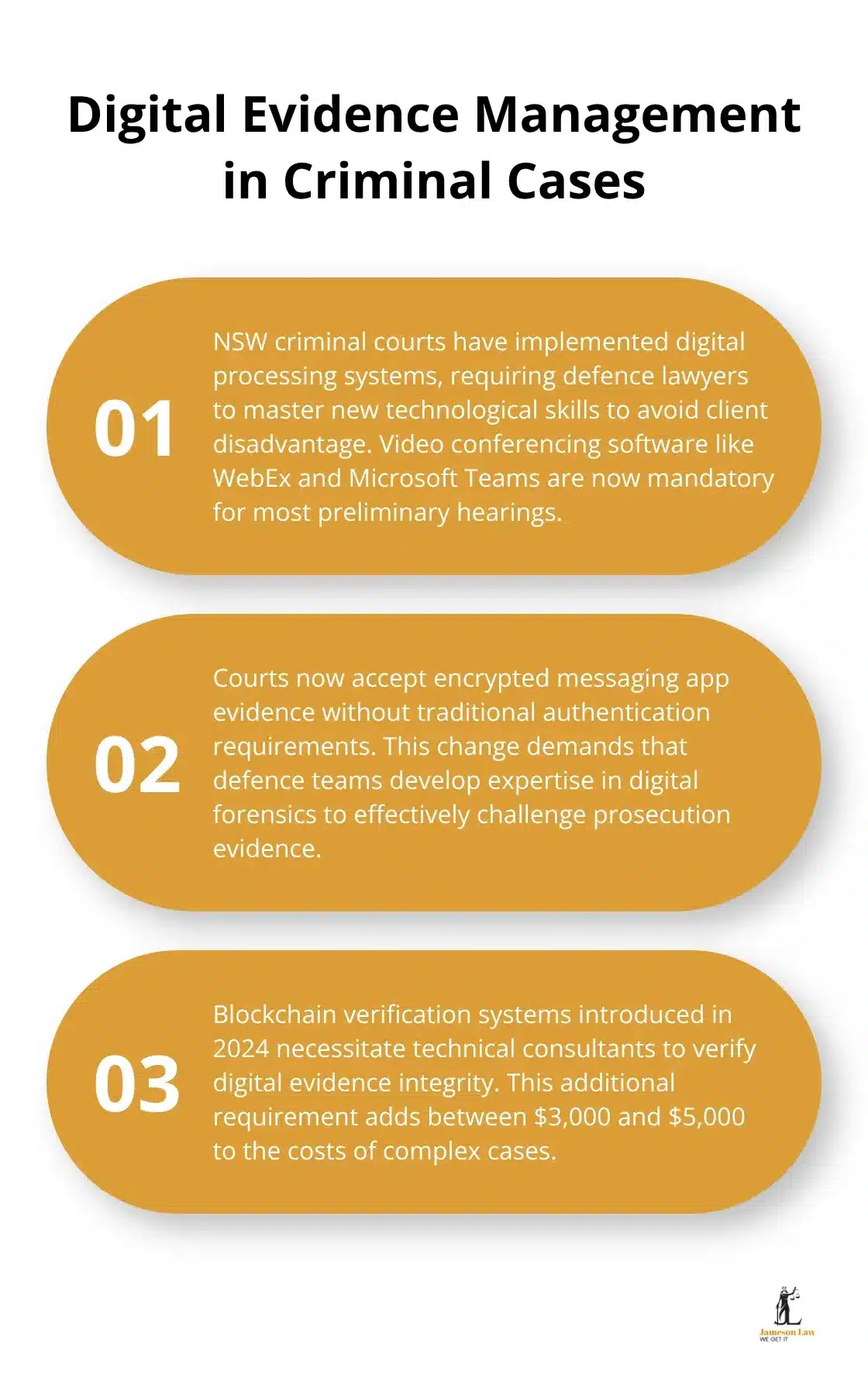Call Jameson Law Sydney: (02) 8806 0866
NSW criminal law continues to evolve quickly through key court decisions and legislative changes. Recent months have brought developments that directly affect how criminal matters are run in New South Wales.
We at Jameson Law track these changes closely for our Sydney clients. This criminal law journal highlights the updates shaping day to day practice.
Recent Criminal Law Case Decisions in NSW
High Court sentencing and conspiracy guidance
The High Court’s April 2024 decision in Director of Public Prosecutions v Kola clarified important points for conspiracy in drug importation matters and has influenced sentence outcomes across jurisdictions. See the High Court summary and materials via the High Court of Australia and the CDPP case library overview for context: DPP v Kola [2024] HCA 14. Funding also lifted for complex Commonwealth prosecutions, with an extra $12.1 million for the CDPP in the 2025–26 Federal Budget, per the Attorney-General’s portfolio announcement and the Budget measures page for the CDPP here.

NSW Court of Criminal Appeal trends
Across 2024, sentence appeals show a continued emphasis on cogent psychiatric evidence when mental health is raised in mitigation. Practitioners should align submissions with the Judicial Commission Sentencing Bench Book and the Commission’s guidance on subjective factors and mental impairment. For a practical wrap on recent appellate developments, see the Public Defenders’ Criminal Law Update 2024–2025.
District Court practice notes and evidence management
In serious violence and domestic violence matters, courts continue to receive Victim Impact Statements in line with the Crimes (Sentencing Procedure) Act. VIS are voluntary for victims, and when tendered the court must consider them under s 30E, with content requirements set out in the Crimes (Sentencing Procedure) Regulation 2024 and guidance for victims via NSW Government Victims Services. On digital exhibits, courts are placing continued focus on authenticity and chain of custody for body-worn video and device extractions. See the District Court’s technology overview on AVL facilities and the LECC review of NSW Police body-worn video.
These case trends sit alongside statutory changes that continue to reshape criminal procedure and bail in NSW.
Legislative Updates and Reforms
Criminal procedure and early case management
NSW courts continue to expand electronic filing and online case management. Legal representatives should make full use of the Online Registry and follow DCJ guidance on registering an account. Earlier case management and electronic lodgement are aimed at reducing delay and improving throughput, aligning with national criminal courts statistics published by the ABS here.
Evidence in the digital era
There is no blanket “blockchain verification” rule in NSW evidence law. Instead, courts apply existing Evidence Act principles to electronic communications and recordings, while the growing use of body-worn video continues. See NSW Police information on Body-Worn Video and practitioner notes analysing hearsay and BWF issues in court practice, for example the Criminal CPD paper on hearsay and body-worn footage here.
Bail reform and electronic monitoring
The Bail Amendment Act 2024 strengthened protections in serious domestic violence matters, including GPS monitoring as a bail condition for certain alleged serious DV offenders and tighter tests for repeat offending risks. Defence bail plans should address supervision, residence and technology conditions in detail. For a broader practice overview, see our quick guide to recent changes in criminal law.

How Technology Is Reshaping Defence Practice
Digital file management and remote appearances
Audio Visual Link appearances remain common for mentions and interlocutory events in NSW courts. Advocates should tailor submissions for screen and ensure exhibits render cleanly over AVL. See the District Court’s note on technology in courts. Practitioners should also be mindful of cybersecurity risks and follow court directions for safe electronic lodgement via the Online Registry.
Mental health evidence and sentencing
Where mental health is relevant, courts expect detailed, probative reports that engage with causation and risk, consistent with the Judicial Commission’s materials on mental health and sentencing. See the Commission’s criminal bench book chapter on the defence of mental health or cognitive impairment and the Sentencing Bench Book on subjective matters. For a practice update on recent appellate guidance, refer again to the Public Defenders’ 2024–2025 update.
Alternative pathways
Therapeutic and culturally-informed approaches continue to grow. For youth matters and appropriate adult cases, restorative practices and programs such as Circle Sentencing remain important options alongside the traditional adversarial track. Our practical how-to on preparing a matter for court is here, with NSW procedure basics here.

Final Thoughts
NSW criminal practice in 2024–2025 reflects tighter case management, stronger victim protections and a steadily expanding digital evidence landscape. For defendants, early advice makes a measurable difference. For practitioners, staying across High Court guidance, bail reforms and evidentiary expectations is essential.
If you or a family member need help, our Sydney criminal defence team can step in quickly to protect your position and map the best path forward.













